In today’s fast-paced world, maintaining a healthy diet has become more important than ever. A balanced approach to eating is not just about restricting calories or following the latest trends; it’s about nourishing your body with the right balance of nutrients to support overall wellness and vitality. When you prioritize nutritious eating, you’re making an investment in your long-term health, energy levels, and quality of life. The foods we consume daily have a profound impact on how we feel, function, and fight disease, making the pursuit of good nutrition one of the most significant lifestyle factors within our control.
1. What Is a Healthy Diet?
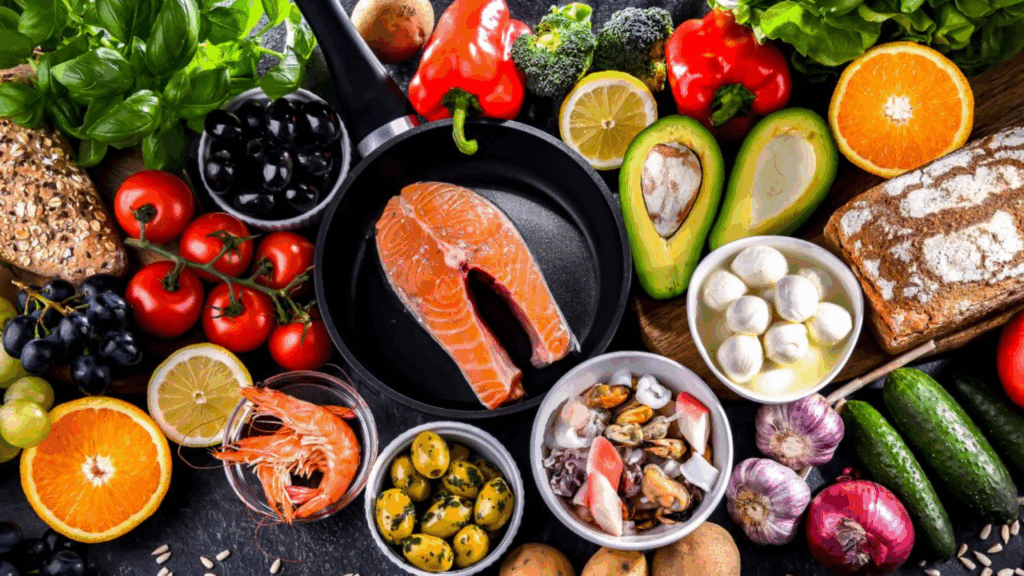
A healthy diet is fundamentally about balance, variety, and moderation. At its core, proper nutrition consists of nutrient-dense foods from all major food groups in appropriate proportions to meet your body’s needs. Unlike restrictive eating patterns or temporary fixes, truly nourishing eating patterns are sustainable and enjoyable for the long term.
The foundation of good nutrition includes:
- Consuming primarily whole, minimally processed foods
- Balancing macronutrients (proteins, carbohydrates, and fats)
- Meeting micronutrient needs through diverse food choices
- Adjusting portions to maintain energy balance
- Personalizing food choices to suit individual health needs and preferences
Rather than focusing on deprivation, nutritious eating emphasizes adding beneficial options that fuel your body efficiently and support optimal functioning of all systems.
2. Key Components of a Healthy Diet
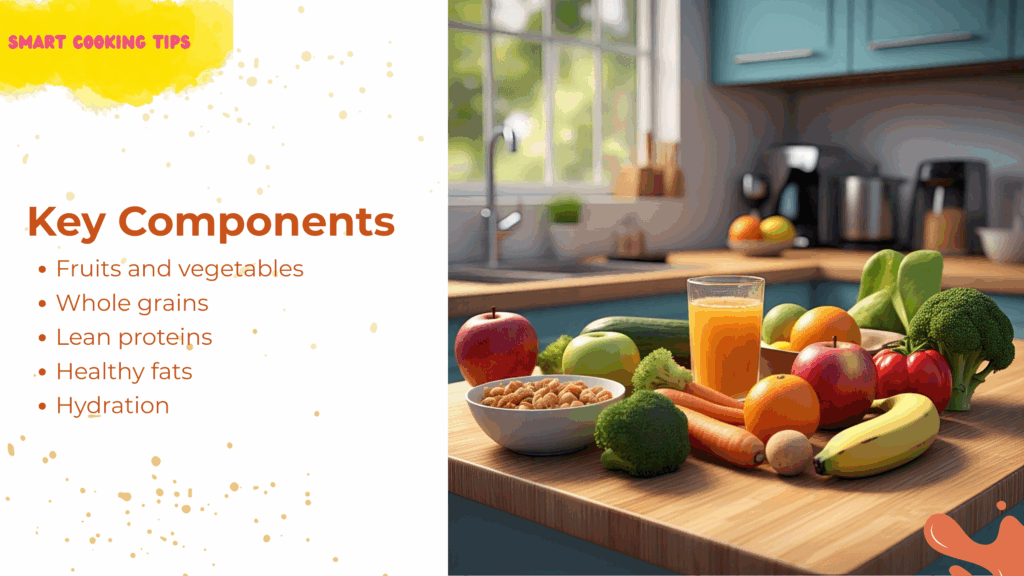
Fruits and Vegetables
The cornerstone of any healthy diet is abundant fruits and vegetables. These plant foods are packed with vitamins, minerals, fiber, and antioxidants that help protect against chronic diseases. Aim to fill half your plate with colorful produce at each meal.
For maximum nutritional benefits:
- Choose a variety of colors to ensure diverse nutrient intake
- Include both raw and cooked vegetables
- Opt for whole fruits over juices to maximize fiber content
Whole Grains
Whole grains are essential because they provide sustained energy through complex carbohydrates, along with fiber and various nutrients. Unlike refined grains, whole grains contain all parts of the grain kernel—the bran, germ, and endosperm.
Great whole grain options include:
- Oats
- Brown rice
- Quinoa
- Barley
- Whole wheat products
Lean Proteins
Protein is a critical component of balanced nutrition, supporting muscle maintenance, enzyme production, and immune function. Focusing on lean protein sources helps minimize saturated fat intake while providing essential amino acids.
Quality protein sources include:
- Poultry without skin
- Fish and seafood
- Legumes (beans, lentils, chickpeas)
- Tofu and tempeh
- Eggs
- Lean cuts of meat
- Low-fat dairy products
Healthy Fats
Contrary to outdated nutrition advice, fats are an important part of nutritious eating. The key is choosing the right types of fats while moderating overall intake. Healthy fats support brain health, hormone production, and absorption of fat-soluble vitamins.
Beneficial fats to include are:
- Avocados
- Olive oil
- Nuts and seeds
- Fatty fish (salmon, mackerel, sardines)
Hydration
Though often overlooked, proper hydration is a fundamental aspect of wellness. Water supports virtually every bodily function, from temperature regulation to digestion and nutrient transport.
For optimal hydration:
- Aim for 8-10 cups of hydrogen water
- Limit sugary beverages and alcohol
- Increase intake during exercise or hot weather
- Consider herbal teas and infused water for variety
3. Benefits of Following a Healthy Diet

Weight Management
A healthy diet naturally supports appropriate weight management without extreme measures. By focusing on nutrient-dense foods that provide satiety, you can maintain energy balance while feeling satisfied. Unlike crash diets, a sustainable approach allows for gradual, lasting results that don’t compromise metabolism or muscle mass.
Improved Digestion
The fiber, prebiotics, and plant compounds in nutritious foods promote gut health and regular digestion. A diverse, whole-food approach nurtures beneficial gut bacteria, which research increasingly links to overall health, including immune function and even mood regulation.
Enhanced Energy Levels
When you eat well, you provide your body with steady, quality fuel rather than the peaks and crashes associated with processed foods and sugar. This consistent energy supply translates to improved productivity, better workout performance, and reduced afternoon fatigue.
Reduced Risk of Chronic Diseases
Perhaps the most compelling reason to maintain proper nutrition is its profound impact on disease prevention. Research consistently shows that eating patterns rich in fruits, vegetables, whole grains, and lean proteins significantly reduces the risk of:
- Heart disease
- Type 2 diabetes
- Certain cancers
- Hypertension
- Osteoporosis
Better Mental Health
The connection between nutrition and mental wellness is gaining increased attention. Good eating habits support brain function through essential nutrients, antioxidants, and anti-inflammatory compounds. Many studies now demonstrate that adherence to balanced nutrition correlates with reduced rates of depression, anxiety, and cognitive decline.
4. Common Myths About a Healthy Diet
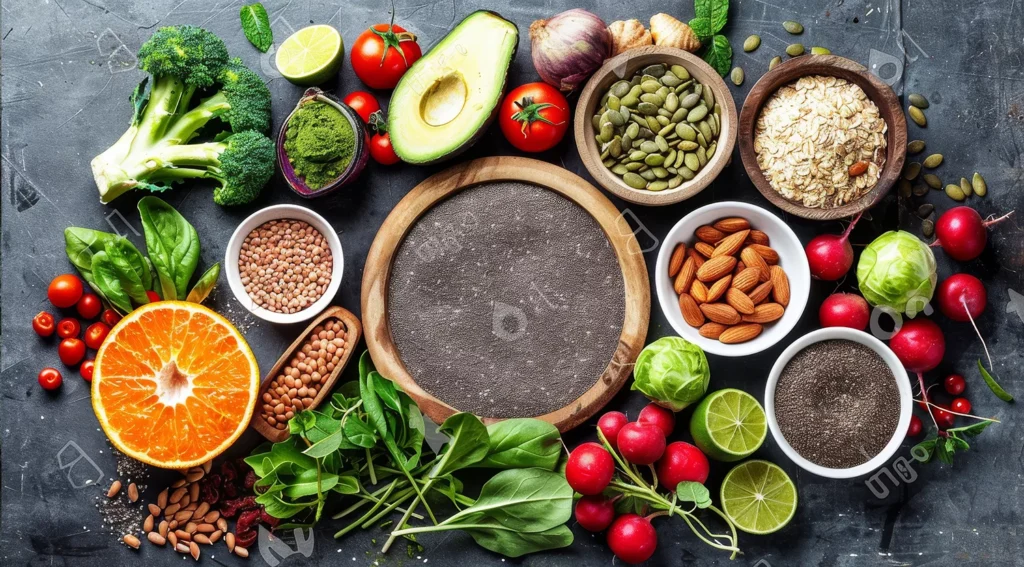
“All Calories Are Created Equal”
Within a healthy diet, the quality of calories matters as much as the quantity. Different foods trigger different hormonal responses, satiety levels, and metabolic effects. Nutritious eating emphasizes nutrient density—getting the most nutritional value for your calories—rather than simple calorie counting.
“Carbs Are the Enemy”
A common misconception is that carbohydrates should be avoided. In reality, carbohydrates from whole food sources are vital energy sources. Balanced nutrition includes quality carbohydrates from vegetables, fruits, legumes, and whole grains while limiting refined carbs and added sugars.
“Fat-Free Is Always Healthier”
Many people mistakenly believe they should eliminate fat. This misconception led to decades of fat-free products loaded with sugar and additives. A balanced approach includes moderate amounts of beneficial fats that support satiety, nutrient absorption, and cellular health.
“Eating Healthy Is Too Expensive”
While some specialty health foods can be costly, nutritious eating can be quite economical. Staples like dried beans, seasonal produce, eggs, and whole grains are often among the most affordable foods available, especially when purchased strategically and prepared at home.
5. How to Start and Stick to a Healthy Diet
Gradual Implementation
The most sustainable approach to adopting better eating habits is making incremental changes. Rather than overhauling everything at once, focus on adding one new habit each week, such as including an extra vegetable serving daily or switching refined grains to whole grains.
Meal Planning and Prepping
Success with balanced nutrition often comes down to preparation. Dedicating time to plan meals, create shopping lists, and prep components in advance makes maintaining good habits much more manageable during busy weekdays.
Try these meal prep strategies:
- Batch cook grains and proteins on weekends
- Wash and chop vegetables ahead of time
- Prepare portable snacks in single-serving containers
- Cook double portions for planned leftovers
Smart Grocery Shopping
The foundation of good nutrition begins at the grocery store. Shop primarily around the perimeter where fresh foods are located, and read labels carefully when selecting packaged items.
For effective shopping:
- Make a list based on planned meals
- Don’t shop hungry
- Choose seasonal produce for better value
- Look for simple ingredient lists without added sugars or artificial additives
Managing Cravings and Balance
A sustainable healthy diet allows for flexibility and occasional treats. Rather than an all-or-nothing approach that leads to guilt and giving up, a realistic approach acknowledges that balance is key to long-term success.
6. Sample Healthy Diet Plan for a Week
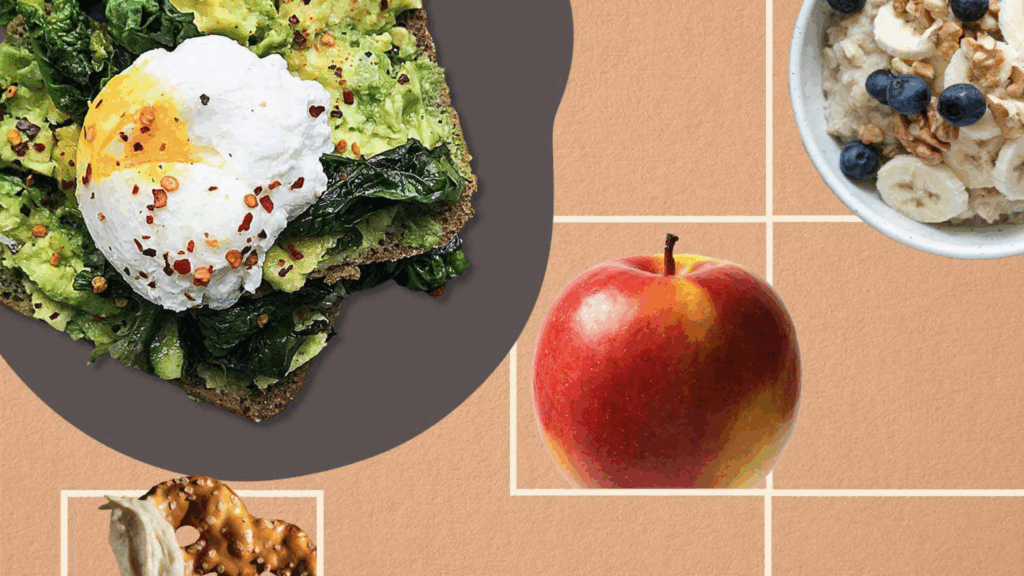
Implementing nutritious eating becomes easier with some structure. Here’s a simple framework for a week of balanced meals:
Monday
- Breakfast: Overnight oats with berries and nuts
- Lunch: Mediterranean salad with chickpeas and olive oil dressing
- Dinner: Baked salmon with roasted vegetables and quinoa
- Snack: Apple with almond butter
Tuesday
- Breakfast: Vegetable omelette with whole grain toast
- Lunch: Lentil soup with mixed green salad
- Dinner: Stir-fried tofu with vegetables and brown rice
- Snack: Greek yogurt with honey and walnuts
Wednesday
- Breakfast: Smoothie with spinach, banana, berries, and protein
- Lunch: Turkey and avocado wrap with vegetable soup
- Dinner: Vegetable and bean chili with small corn muffin
- Snack: Hummus with carrot and cucumber sticks
Thursday
- Breakfast: Whole grain cereal with milk and sliced banana
- Lunch: Quinoa bowl with roasted vegetables and tahini dressing
- Dinner: Baked chicken breast with sweet potato and broccoli
- Snack: Small handful of mixed nuts and dried fruit
Friday
- Breakfast: Avocado toast on whole grain bread with poached egg
- Lunch: Tuna salad (made with yogurt) on mixed greens
- Dinner: Whole grain pasta with tomato sauce, vegetables, and lean ground turkey
- Snack: Cottage cheese with pineapple
Weekend
- Breakfast: Whole grain pancakes with fruit topping
- Lunch: Black bean and vegetable quesadilla with salsa
- Dinner: Grilled fish or lean meat with roasted vegetables
- Snack: Dark chocolate and berries
This meal plan emphasizes variety while maintaining consistent nutrition principles.
7. ChopChop USA Kitchen Tools for Nutritional Success
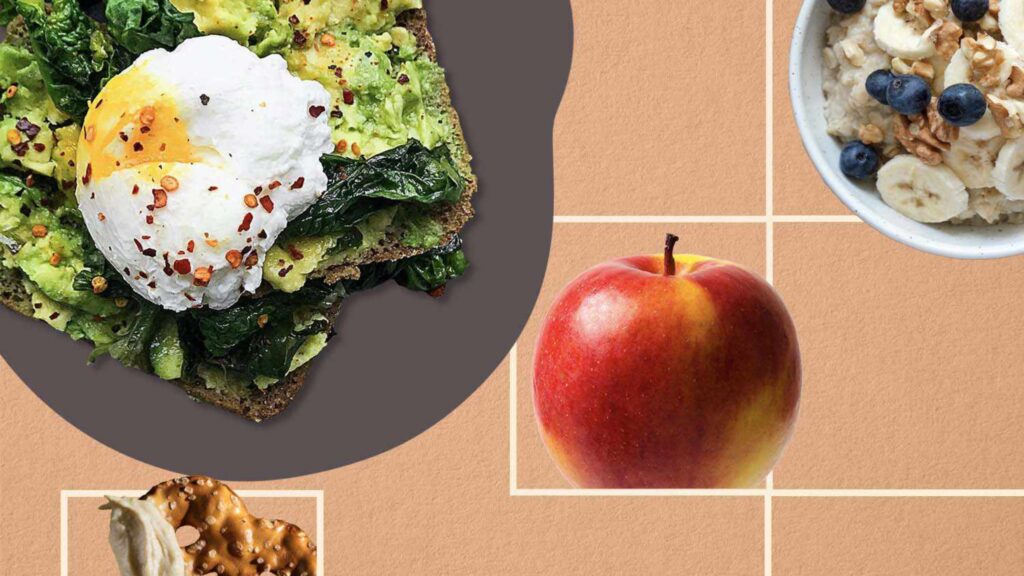
Equipping your kitchen with the right tools is essential for maintaining a healthy diet. ChopChop USA offers premium kitchen implements that make nutritious food preparation efficient, safe, and enjoyable:
Titanium Cutting Boards
ChopChop USA’s titanium cutting boards represent a revolutionary upgrade to traditional wooden or plastic options:
- Naturally antibacterial surface prevents cross-contamination
- Non-porous material won’t harbor bacteria or absorb food odors
- Exceptionally durable and won’t warp, crack, or dull your knives
- Dishwasher safe for easy cleaning between food prep tasks
Boning Knife
The ChopChop USA professional boning knife is indispensable for preparing lean proteins essential to a healthy diet:
- Precision-engineered flexible blade for accurate fat trimming
- Ergonomic handle for comfortable grip during detailed work
- Premium steel maintains sharpness for effortless preparation
- Perfect for removing skin from poultry and preparing lean cuts of meat
Titanium Utensil
Complete your healthy kitchen setup with ChopChop USA’s titanium utensil collection:
- Lightweight yet incredibly strong for everyday cooking
- Non-reactive material preserves the flavor profile of nutritious foods
- Heat-resistant handles for safe stovetop use
- Designed for longevity, reducing waste from disposable utensils
Investing in quality kitchen tools from ChopChop USA not only makes healthy cooking more enjoyable but also more efficient, encouraging consistent meal preparation at home, a cornerstone habit for maintaining nutritious eating patterns for life.
Conclusion
Adopting a healthy diet is a powerful step toward enhanced wellness. It’s not about perfection but about making consistent, nourishing choices. Incorporating nutrient-rich foods and planning meals mindfully can lead to sustainable habits. Start with small changes that align with your lifestyle and preferences. Over time, these adjustments can boost energy, improve health markers, and build resilience against disease. Every positive choice contributes to your overall well-being.


